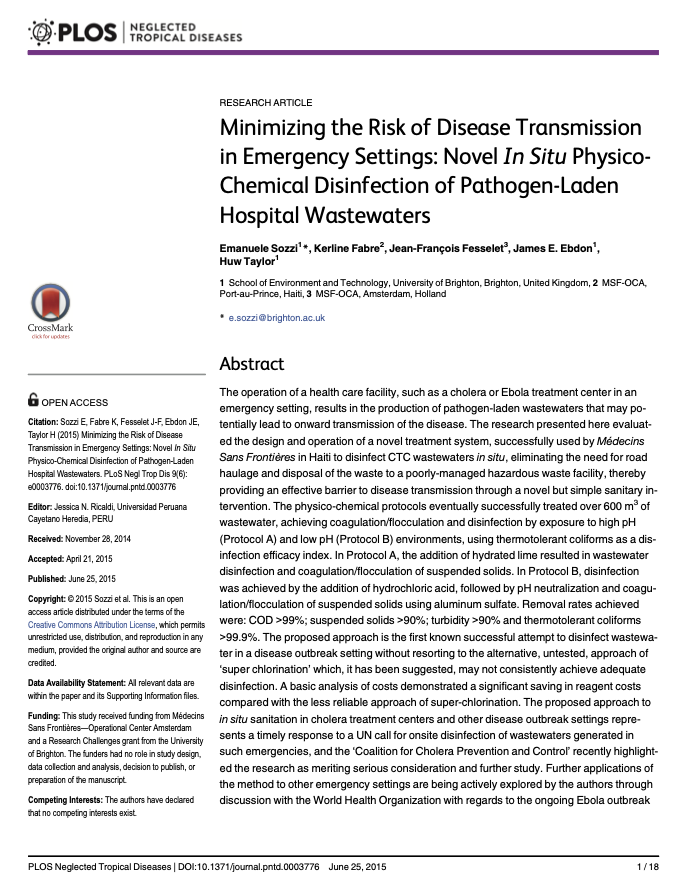Minimizing the Risk of Disease Transmission in Emergency Settings: Novel In Situ Physico- Chemical Disinfection of Pathogen-Laden Hospital Wastewaters
Author: E. Sozzi, K. Fabre, J.-F. Fesselet, J. E. Ebdon, H. Taylor
Year: 2015
Publisher: PLOS Neglected Tropical Diseases
When an outbreak of infectious disease occurs in a low-resource setting, the rapid con- struction of emergency healthcare facilities may significantly reduce mortality. The facili- ties also result in the generation of large volumes of highly contaminated fecal waste that represents a potential basis for further disease transmission. Infection protection and con- trol strategies at healthcare facilities must therefore include measures to establish and maintain good water supplies, sanitation and hygiene (WASH). Even where the pathogen of concern is not waterborne, health-care providers have a ‘duty-of-care’ to protect work- ers and neighboring communities from all excreta-borne diseases. In this study, the au- thors successfully demonstrated, for the first time, the in situ disinfection of wastewaters from cholera treatment centers during the Haiti cholera outbreak, using a low-cost physi- cochemical method. The approach is currently being adapted by NGOs to help manage human excreta in other emergency settings, including the current Ebola outbreak. Al- though the Ebola virus is relatively fragile, it may exist in high concentrations in the bodily fluids (including feces) of those with the disease. The approach to in situ disinfection of ex- creta described here may therefore support infection control in outbreaks of Ebola and other infectious diseases.
Minimizing the Risk of Disease Transmission in Emergency Settings: Novel In Situ Physico- Chemical Disinfection of Pathogen-Laden Hospital Wastewaters
Rating
Would you like to see other resources here?
Give us your feedback"*" indicates required fields
Still have questions?
You could not find the information you were looking for? Please contact our helpdesk team of experts for direct and individual support.


